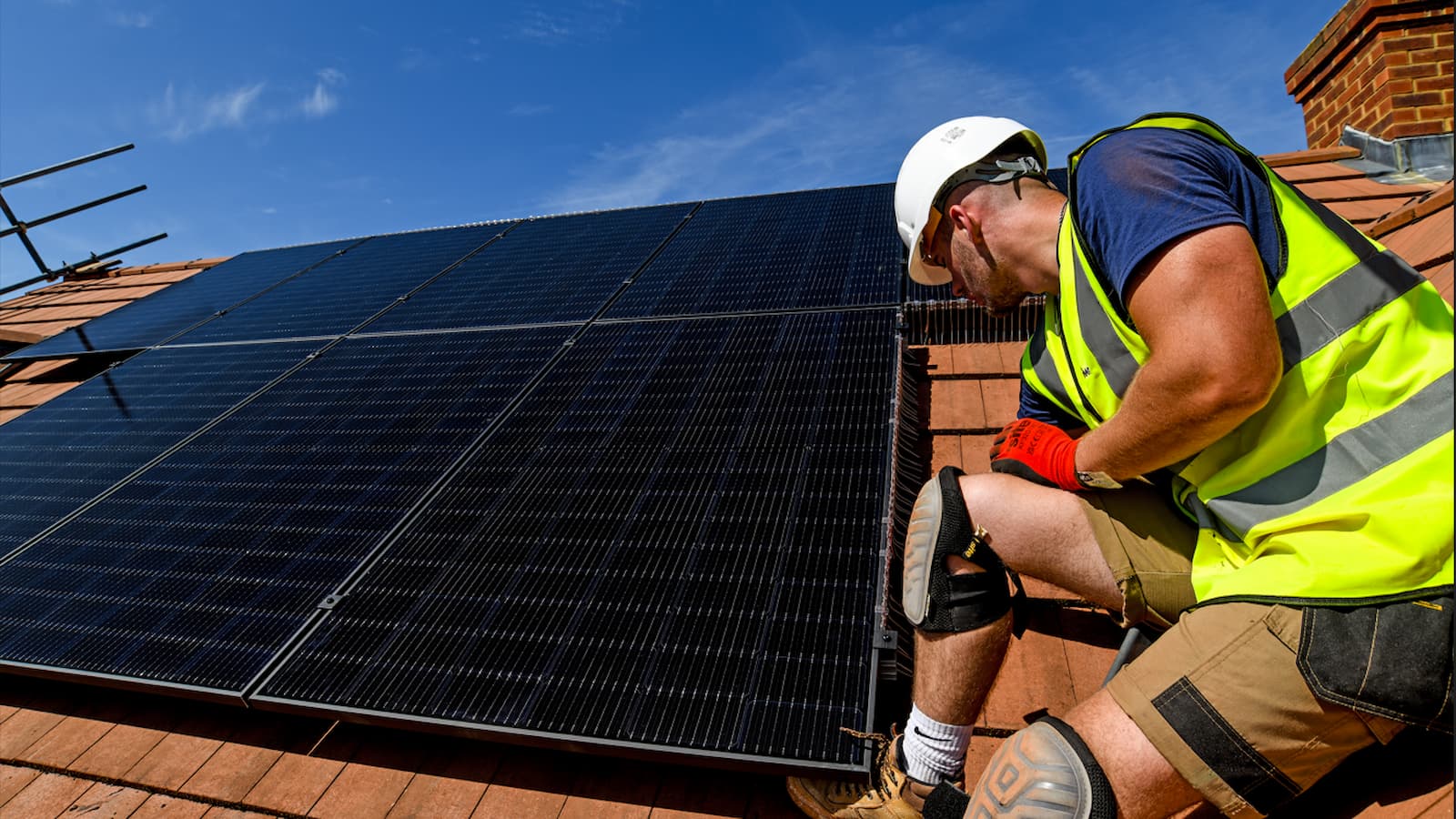Solar PV could pay off as soon as three years amid energy price cap rises
Energy costs potentially hitting over £5,000 a year by April 2023 could cause a surge in demand for solar PV panels
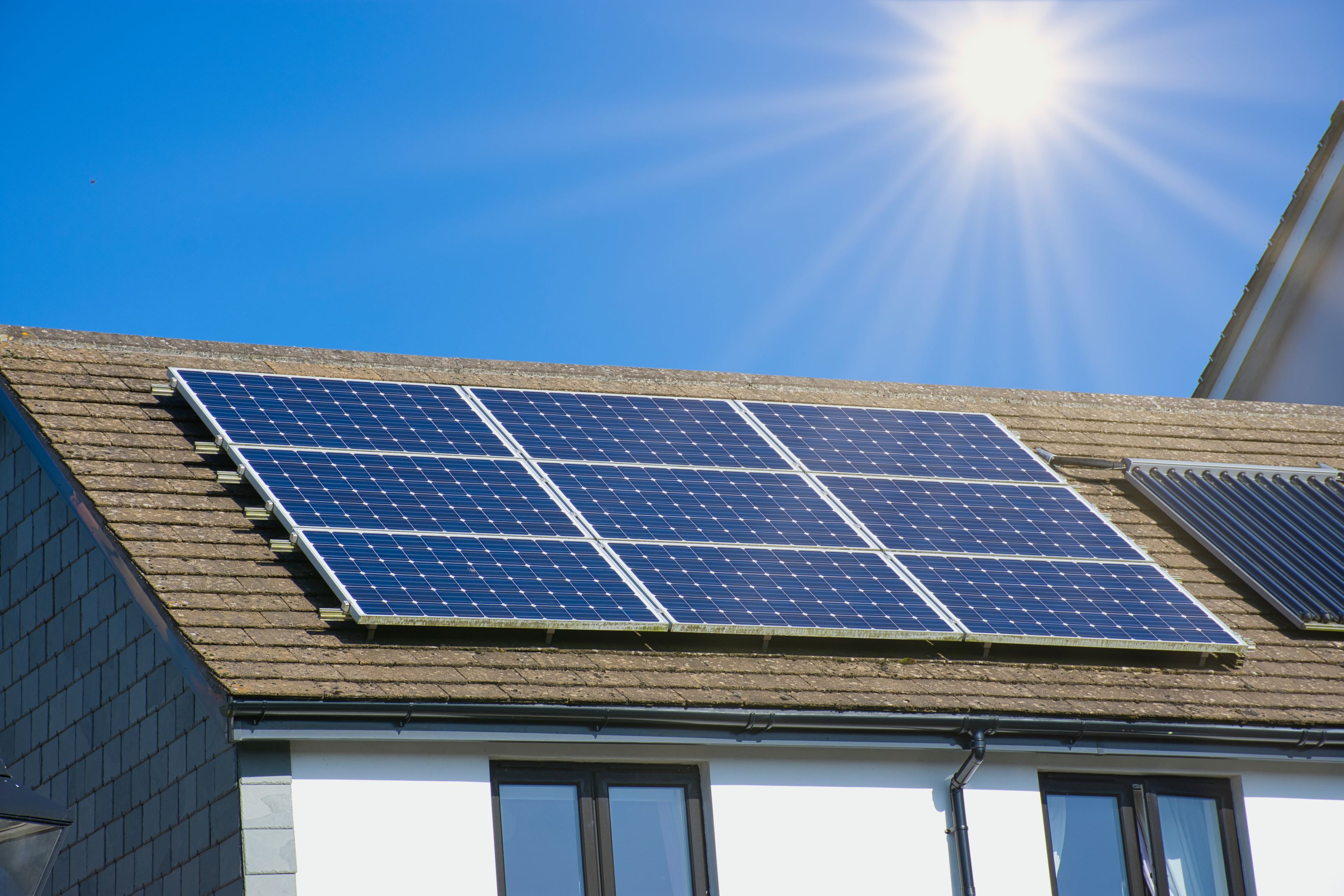
Solar PV could save households as much as £3,000 a year if energy price rises continue as expected in 2023, according to analysis by industry experts.
A set of graphs compiled by Green Building Renewables, which specialises in solar energy, heat pumps and electric car charging, plot the cost of installing solar panels against predicted electric and gas prices.
They show how the payback on solar PV panels, which generate electricity, could be as soon as three years if the price cap rises again in October, January and April, as predicted.
And with the cost of energy forecast to rise to an average £5,000 per household per year by April, this could mean a surge in demand for solar PV as homeowners try to cut energy costs in the long term.
Will energy prices rise in 2022 and 2023?
The UK energy price cap is expected to be increased in October 2022. As such, experts predict that energy price rises may increase by as much as 70%, meaning energy bills topping £3,500 per year.
The price cap already rose on 1st April 2022 by 54%, raising the average energy bill by £693 a year.
Finance company Investec is predicting that in January 2023, average energy costs will hit £4,210 per year, while energy consultancy Auxilione puts its energy cost forecasts at £5,038 per year by April 2023.
Get the Homebuilding & Renovating Newsletter
Bring your dream home to life with expert advice, how to guides and design inspiration. Sign up for our newsletter and get two free tickets to a Homebuilding & Renovating Show near you.
This first graph shows this information plotted out in one easy to understand chart. It shows average energy bill forecasts for low, medium and high usage households from October this year to October 2023, along with historic energy costs dating back to October 2021.
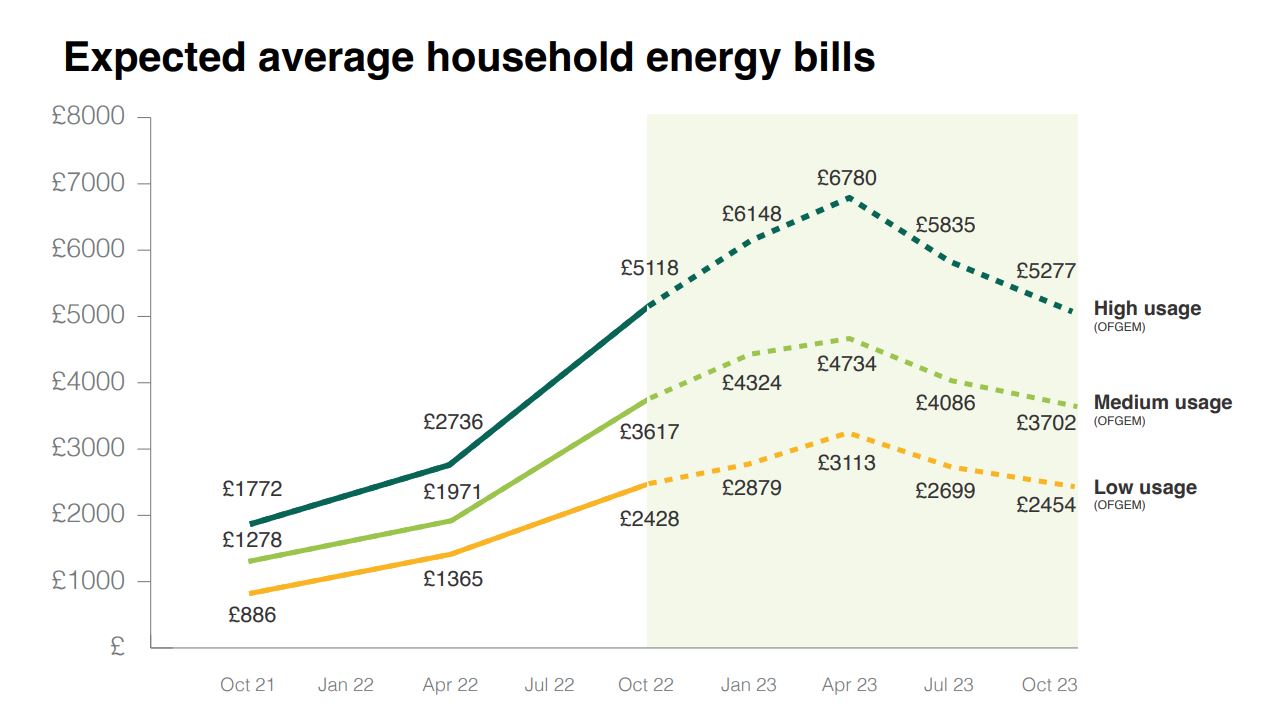
The second graph, seen below, shows these average energy bill forecasts broken down into what it would cost for every unit of electricity a household might use. This is shown in Kilowatts per hour (kWh)
It shows that the average rate for electricity is currently 28.35p/kWh (seen in orange). The average standing charge, which isn't shown in the chart, is 45.34p per day.
Immediately before April 2022, the average rate for electricity was 21.2p/kWh, and the average standing amount was 24.88p per day.
When you look at the forecasts past October 2022, it estimates electricity will cost an average price of 78.6p/kWh, with no estimate on the standing charge.
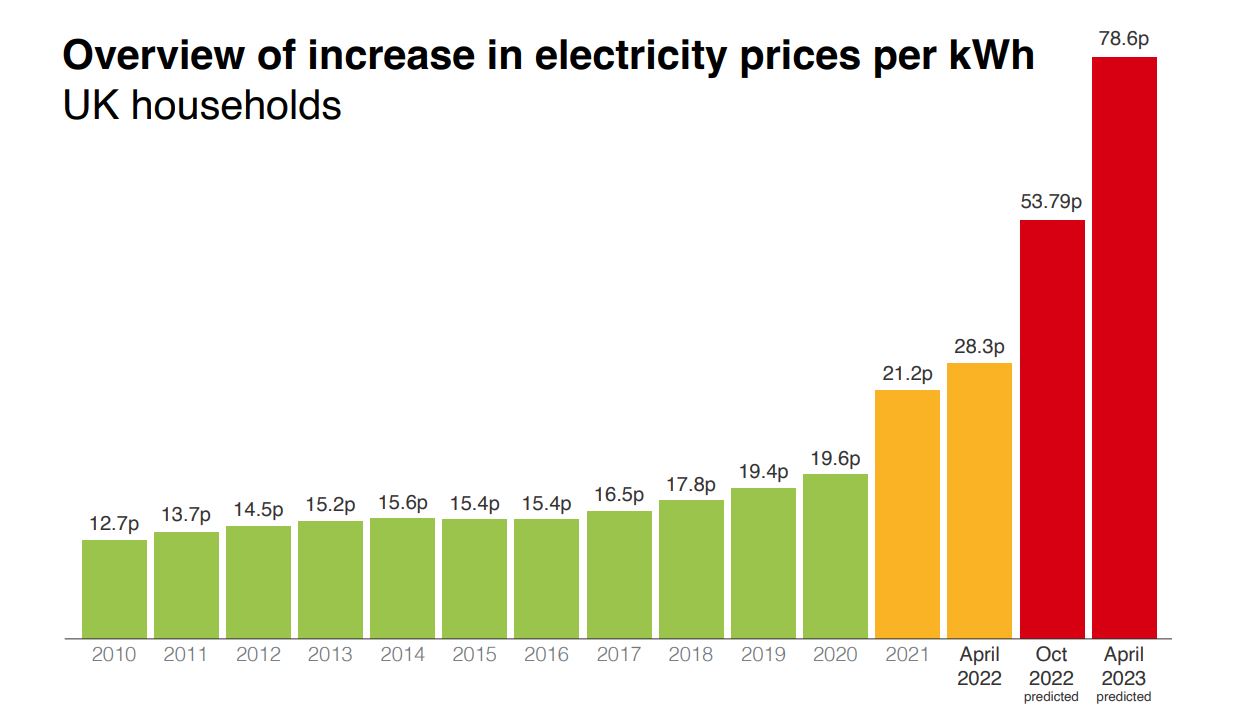
Could there be a surge in demand for solar panels?
While energy prices soar, the cost of installing solar panels has not suffered such huge increases.
Green Building Renewables puts the cost at £9,800 for installing a 12 panel 4.38kW PV solar system with a solar battery by April 2023.
When energy price forecasts are combined with expected costs of solar PV in this third chart below, it shows that by April 2023 the cost of installing solar panels could be clawed back within three years. This is due to the savings on energy bills.
If energy bills hit 78.6p/kWh as predicted, solar panels could save homes at least £3,000 in electricity every year, according to Green Building Renewables.
Unsurprisingly, if this proves accurate, this could lead to more demand for solar PV.
Chris Delaney, the managing director of Green Building Renewables, said they had already seen a dramatic increase in enquiries for solar panel and battery systems. "The news about the energy price cap coupled with issues of energy security has no doubt impacted on the level of interest we are seeing," he said.
"With the predicted electricity price rises, the payback time for solar PV panel systems is going to be dramatically reduced and this has made the technology even more appealing."
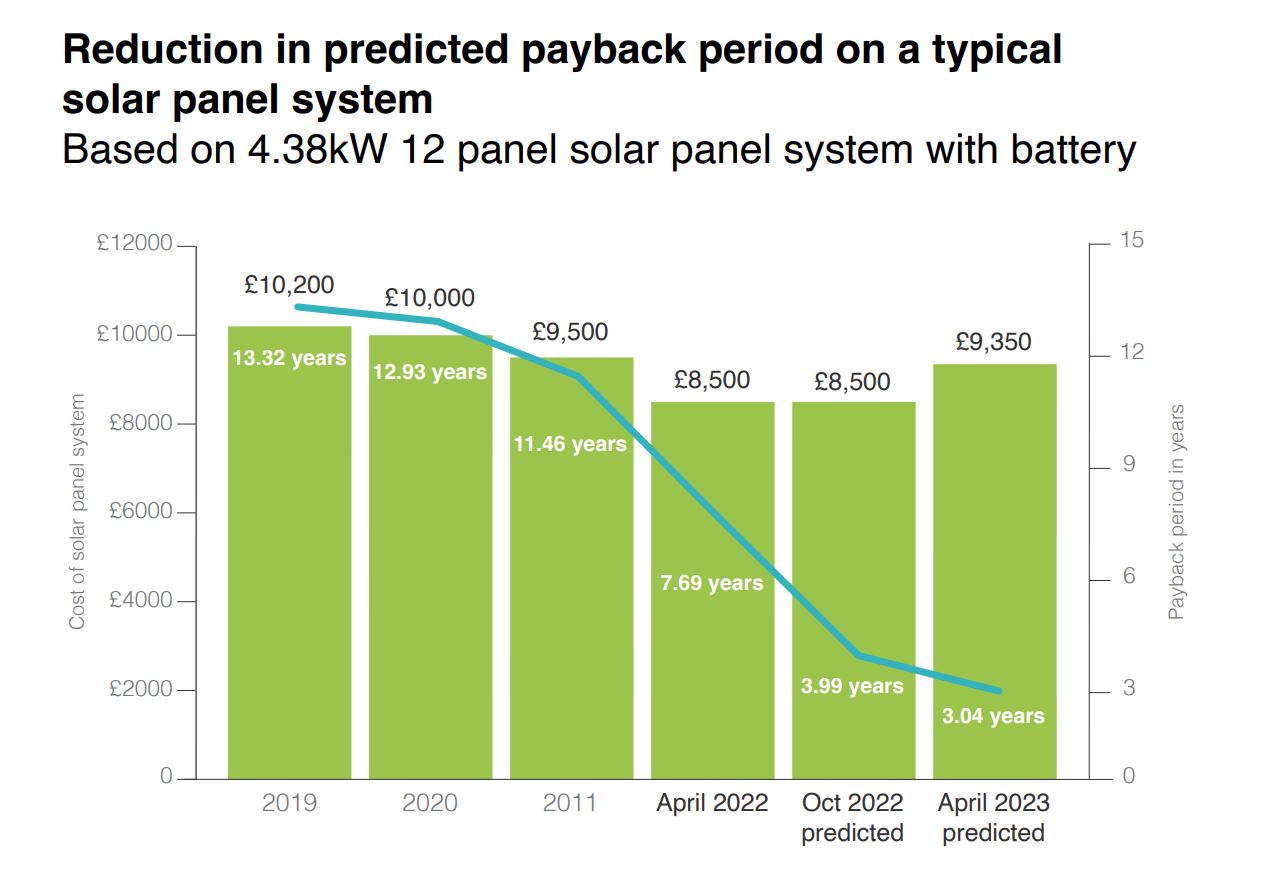
Will there be enough supply of solar panels?
If demand for solar panels happens too quickly, it is possible there may not be enough supply. Existing issues with supplying components for batteries following the pandemic could potentially add to the problem. This could mean homeowners will need to sign up to waiting lists.
However, installers are growing fast to try to keep up with demand, and so far seem to be coping well.
That said, Efficient Building Solutions CEO, Philip Fellowes-Prynne called on the Government to do more to help.
He told Homebuilding & Renovating: “Seeing the increased demand and interest from customers in solar energy should be recognised as extremely positive, however, the government should be looking at more ways in which they can support businesses like Green Building Renewables to meet the demand."
"We are already seeing the supply of solar PV storage batteries being affected by the jump in demand. The government must work with the industry; renewables companies, original equipment manufacturers, and suppliers to understand how a secure supply chain can be built."
He added that schemes like a 50% stamp duty rebate to incentivise buyers to install renewable technology – like has been suggested with heat pumps – on their homes, would be welcomed by the sector.
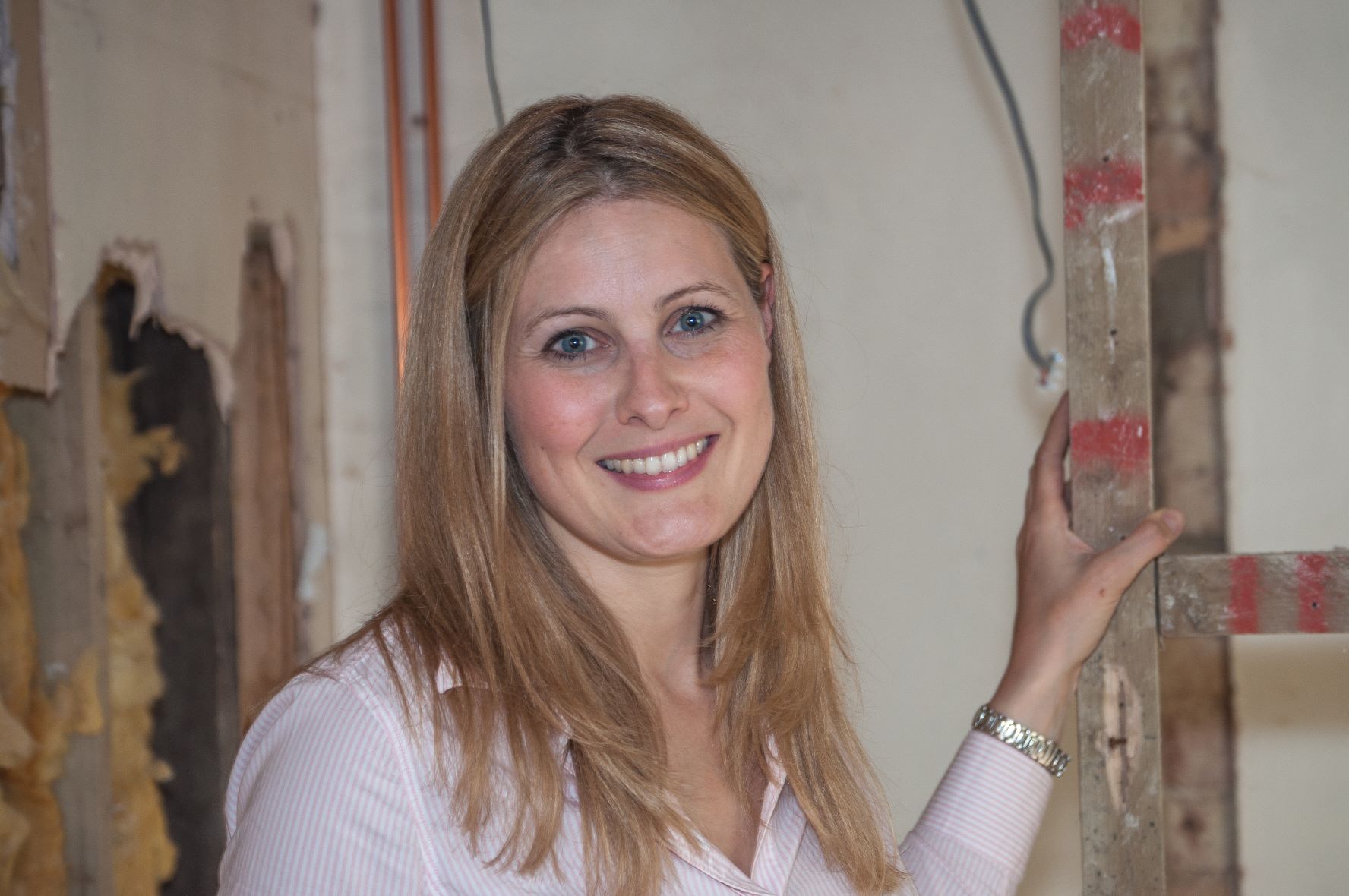
Amy spent over a decade in London editing and writing for The Daily Telegraph, MailOnline, and Metro.co.uk before moving to East Anglia where she began renovating a period property in rural Suffolk. During this time she also did some TV work at ITV Anglia and CBS as well as freelancing for Yahoo, AOL, ESPN and The Mirror. When the pandemic hit she switched to full-time building work on her renovation and spent nearly two years focusing solely on that. She's taken a hands-on DIY approach to the project, knocking down walls, restoring oak beams and laying slabs with the help of family members to save costs. She has largely focused on using natural materials, such as limestone, oak and sisal carpet, to put character back into the property that was largely removed during the eighties. The project has extended into the garden too, with the cottage's exterior completely re-landscaped with a digger and a new driveway added. She has dealt with de-listing a property as well as handling land disputes and conveyancing administration.
